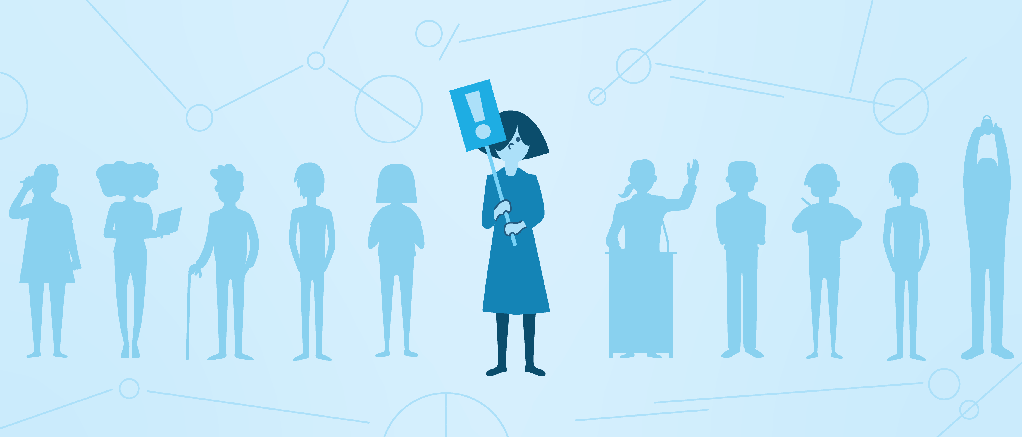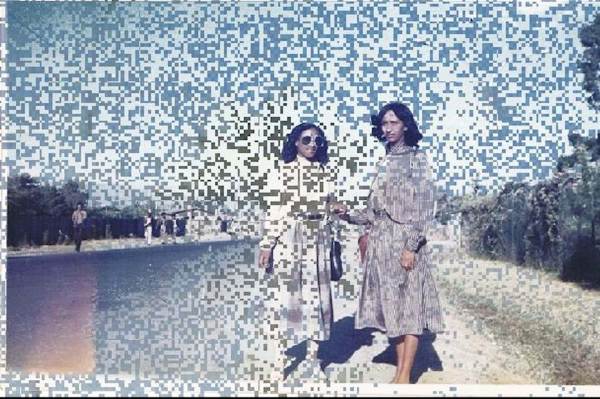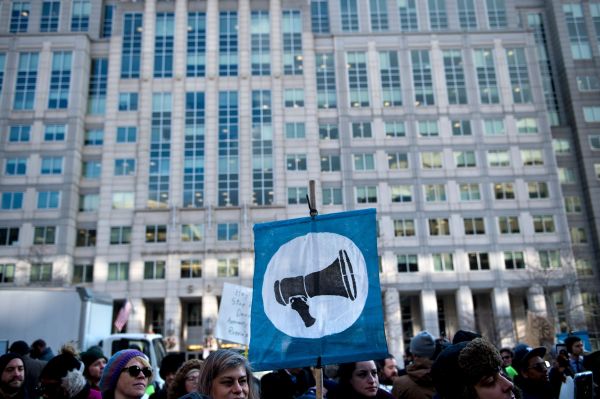Activist

“Be“Being on the Internet is not a privilege—it’s a right.”ing on the Internet is not a privilege—it’s a right.”
– Behran Taye Gemeda, peace studies practitioner and social justice activist
Activists address injustice in our communities and seek broader social change. Those who work at the intersection of activism and tech—like activist Berhan Taye Gemeda and future of work advocate Michelle Miller—are serving the greater public good. We also call them public interest technologists.
Public interest tech is about all of us. To thrive, it needs the talent and dedication of people, organizations, and funders.
Transcript
BERHAN TAYE GEMEDA: Censorship and surveillance online has become so rampant that it affects every aspect of your life. It’s like telling people, “You’re not allowed to read a book” or “You’re not allowed to read this page of the book, but you’re allowed to read the other page because, you know, this one is not relevant for you.”
[Berhan Taye Gemeda, Ford-Mozilla Open Web Fellow, Research Action Design. A Black woman with short hair and glasses, wearing silver hoop earrings and a sleeveless denim dress.]
[An animation sequence shows an open book. The left page reads, “Net Neutrality … is the Internet’s guiding principle. It preserves our right to communicate freely online.” Right-hand page says, “Net Neutrality … means an Internet that enables and protects free speech.” The text is then blocked out and stamped with the words, “This content has been censored.”]
Berhan Taye Gemeda, take one.
I’m from Ethiopia. My lived reality is censorship and surveillance. It affects every aspect of your life, where you have to think twice before you tweet something—whether it’s positive or negative about a certain group or a certain ruling party—which really decreases the spaces that you have for civic engagement.
We’ve had too many incidents of internet shutdowns. When Twitter and Facebook are closed down and there’s a massive protest happening in your country, and you want to understand what’s happening on the ground—you want to verify the number of people that have been killed, the number of people that have been arrested, where your friend is that you haven’t been able to reach. You can’t call them, you can’t find them online.
My access to information is a right. My right to express myself freely is also a right. And being on the internet is also not a privilege—it is a right. The internet should be held as a public utility or be governed by the public for the public because it was created with that notion, right? So what we should be doing is to fight furthermore to make sure that the internet is open, is accessible and affordable to the millions and millions of people that need information. That’s how we’ll be able to solve the world’s problems.
[Ford Foundation logo: a globe made up of a series of small, varied circles. Mozilla logo.]
Accessibility Statement
- All videos produced by the Ford Foundation since 2020 include captions and downloadable transcripts. For videos where visuals require additional understanding, we offer audio-described versions.
- We are continuing to make videos produced prior to 2020 accessible.
- Videos from third-party sources (those not produced by the Ford Foundation) may not have captions, accessible transcripts, or audio descriptions.
- To improve accessibility beyond our site, we’ve created a free video accessibility WordPress plug-in.
“We must continue to fight to make sure the Internet is open, accessible, and affordable to the millions and millions of people who need information.”
– Behran Taye Gemeda, peace studies practitioner and social justice activist
Activist Berhan Gemeda talks about the dangers of censorship and surveillance.


